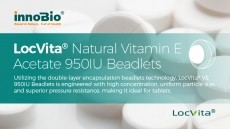‘Powerful’: Raising vitamin D levels may slash preterm birth risk

Data from over 1,000 women and babies confirm previous research at the Medical University of South Carolina, which found that blood levels of vitamin D of at least 40 ng/ml (100 nmol/L) lowered the pre-term risk by 59%, compared to women with concentrations less than 20 ng/ml (the current sufficient level recommended by the Institute of Medicine).
“These findings are another powerful example of the importance of the environment in our human health,” said Roger Newman, MD, Dir. OB/Gyn, Medical University of South Carolina. “Our evolution away from sun exposure over the last hundred years has resulted in widespread Vitamin D deficiency which contributes to multiple health consequences including higher and racially disparate preterm birth rates.”
Scientists from GrassrootsHealth, The University of Texas MD Anderson Cancer Center, and the Medical University of South Carolina Children's Hospital assessed maternal levels of 25-hydroxyvitamin D (25(OH)D) in a diverse population of women, and reported their findings in PLoS One.
Ethnicity
The researchers tested vitamin levels at the first prenatal visit, and then, if levels were below 40 ng/ml, to provide supplementation and retest at 24-28 weeks gestation and again at delivery.
The data showed that, overall, 90% of the women had initial levels lower than 40 ng/ml, and 97% of black women had initial levels lower than 40 ng/ml.
Women with a follow-up test of greater than or equal to 40 ng/ml only had a 6% preterm rate, a full 60% lower rate than the normal population, reported the researchers.
For non-white women only, there was an 18% preterm rate at the start of the study and a 78% lower rate of preterm birth if the women achieved the 40 ng/ml by the 2nd test. Non-white women with two tests reduced their preterm birth rate to 4%.
"Reducing the heavy burden of associated morbidity, mortality and economic costs"
“Vitamin D status is a key modifiable maternal risk factor for the prevention of [preterm birth],” wrote the researchers. “The findings from this analysis support the previously identified association between higher maternal 25(OH)D concentrations and reduced risk of PTB and shows that the benefits identified in the RCTs by Hollis and Wagner et al. are achievable in a general obstetrical population.
“These findings also highlight the importance of achieving a 25(OH)D concentration substantially above 20 ng/mL, the concentration recommended by the IOM for pregnant women, for [preterm birth]prevention,” they added.
“Vitamin D testing and supplementation of pregnant women is a safe, affordable prevention tool that could substantially reduce the occurrence of [preterm birth] and the heavy burden of associated morbidity, mortality and economic costs.”
Source: PLoS One
2017, 12(7):e0180483. doi: 10.1371/journal.pone.0180483
“Maternal 25(OH)D concentrations ≥40 ng/mL associated with 60% lower preterm birth risk among general obstetrical patients at an urban medical center”
Authors: S.L. McDonnell et al.

















